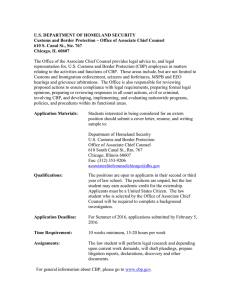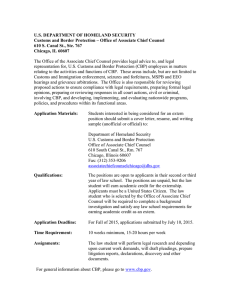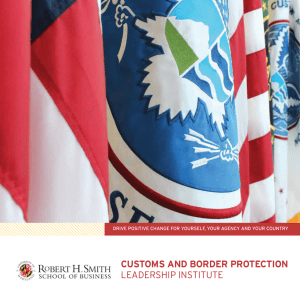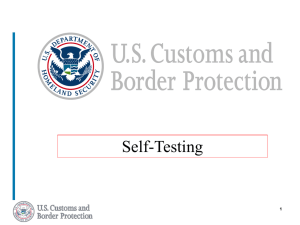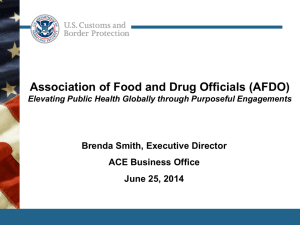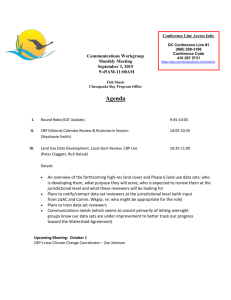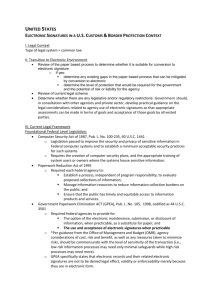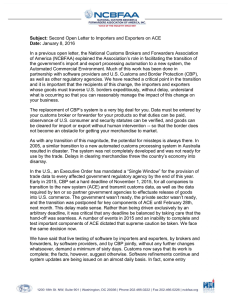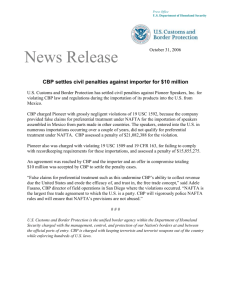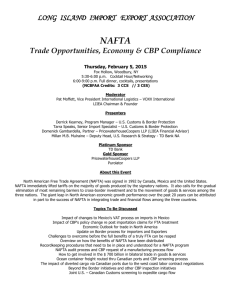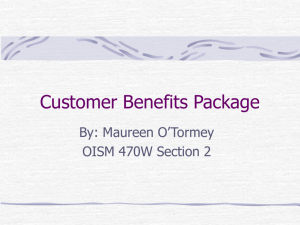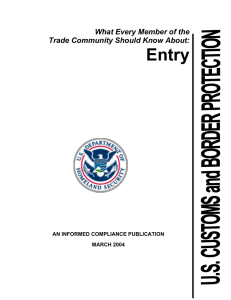COMMON U.S. SHIPPING ACRONYMS
advertisement
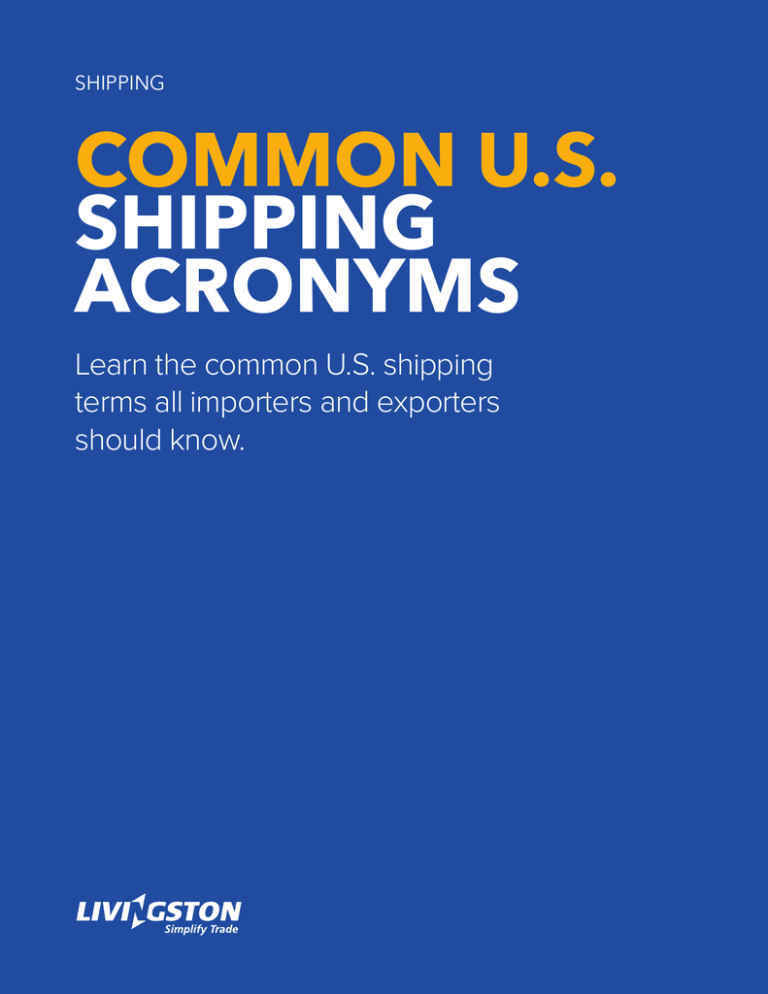
SHIPPING COMMON U.S. SHIPPING ACRONYMS Learn the common U.S. shipping terms all importers and exporters should know. Shipping Definitions of common U.S. shipping acronyms The following list will assist you in understanding the meanings of many common shipping acronyms. ABI – Automated Broker Interface A system to submit electronic entry and release data to CBP. ACE – Automated Commercial Environment The commercial trade processing system being developed by CBP to facilitate legitimate trade and strengthen border security. (Implemented in multiple release phases with full completion schedule for 2015). ACH – Automated Clearing House An automated payment process for debit or credit. ACS – Automated Commercial System CBP’s current automation system. To be replaced by ACE. AES – Automated Export System A system that automates export reporting from the U.S. AMS – Automated Manifest System A systems that automates manifest reporting into the U.S. APHIS – Animal and Plant Health Inspection Service A agency with a mission to protect and promote U.S. agricultural health, regulate genetically engineered organisms, administer the Animal Welfare Act, and carry out wildlife damage management activities. BCS – Border Cargo Selectivity A system that assesses the risk and examination requirements for high volume borders. BRASS – Border Release Advanced Screening and Selectivity Formerly known as line release; the process of releasing goods (typically rail shipments) across the border. CBP preapproves products and a bar code label is used to effect release. CAFES – Customs Automated Forms Entry System A reporting system to CBP about shipments traveling under CBP – U.S. Customs and Border Protection The bureau within the U.S. Department of Homeland a carrier’s bond for clearance or exportation at another port. Security that includes the border patrol, customs service, and inspectors at U.S. points of entry. C-TPAT – Customs Trade Partnership Against Terrorism A voluntary supply chain security program led by CBP focused on improving the security of private companies’ supply chains with respect to terrorism. DOT – Department of Transport A federal cabinet department of the U.S. government dedicated to ensuring a fast, safe, efficient, accessible and convenient transportation system. ESAR – Entry Summary, Accounts and Revenue ESAR capabilities integrate and enhance ACE’s automated entry summary processing. These ESAR features of ACE enable CBP and its trade partners to interact electronically. FAST – Free and Secure Trade An agreement between the U.S., Canada and Mexico on joint border security initiatives. FCC – Federal Communications Commission An independent U.S. government agency charged with regulating interstate and international communications by radio, television, wire, satellite and cable. FDA – Food and Drug Administration An agency within the U.S. Public Health Service that assures the safety, efficacy, and security of human and veterinary drugs, biological products, medical devices, the nation’s food supply, cosmetics, and products that emit radiation. FTZ – Foreign Trade Zones Specified areas with favorable regulations for border trading. HMF – Harbor Maintenance Fee A CBP fee applied to all ocean shipments arriving in the U.S. ISA – Importer Self Assessment A voluntary program where participants review their compliance and report to CBP periodically on findings so they do not undergo a Customs audits (focused assessments). ISF - Importer Security Filing The process of reporting 10 data elements to U.S. Customs for shipments bound to a U.S. port. Importer Security Filing is required to comply with the new U.S. 10+2 regulations. MPF – Merchandise Processing Fee A fee collected by CBP on most goods imported into the U.S. that do not qualify for any special programs such as NAFTA. PAPS – Pre-arrival Processing System The mandatory release process for truck importations. This relies on pre-filing the entry information with CBP for them to perform a risk assessment prior to arrival. PGA – Participating Government Agency Any government agencies involved in the import process, such as the Food and Drug Administration, the Environmental Protection Agency, and the Department of Transportation. PMS – Periodic Monthly Statement A process where an importer/customs broker makes payments of duty on a monthly basis rather than an entry by entry basis. RLF – Remote Location Filing A process that allows approved customs brokers or importers to submit electronic entry data for clearance from a location other than the port of arrival. SCAC – Standard Carrier Alpha Code A code issued by the National Motor Freight Traffic Association (NMFTA). It is a is a unique identifier for the carrier. SCN – Shipment Control Number A unique number identifying a shipment. It can be the PRO number, PAPS number or another form of master bill number. USDA – U.S. Department of Agriculture The department responsible for developing and executing U.S. federal government policies on farming, agriculture and food. Contact Livingston Have questions or need help with your shipments? Contact your account executive, write to us at: simplify@livingstonintl.com or give us a call at 1-800-837-1063 www.livingstonintl.com
